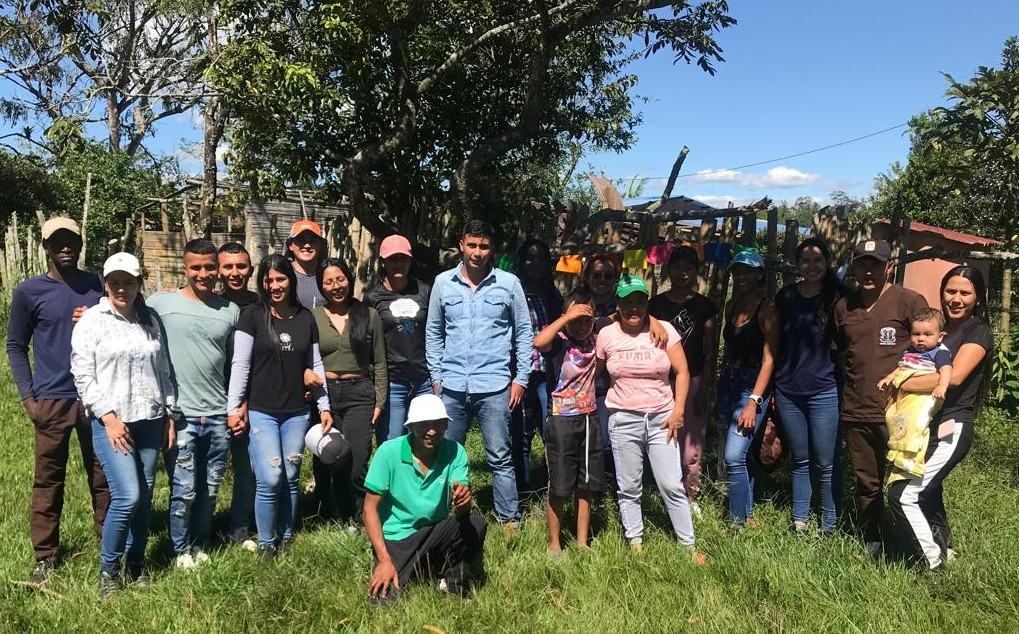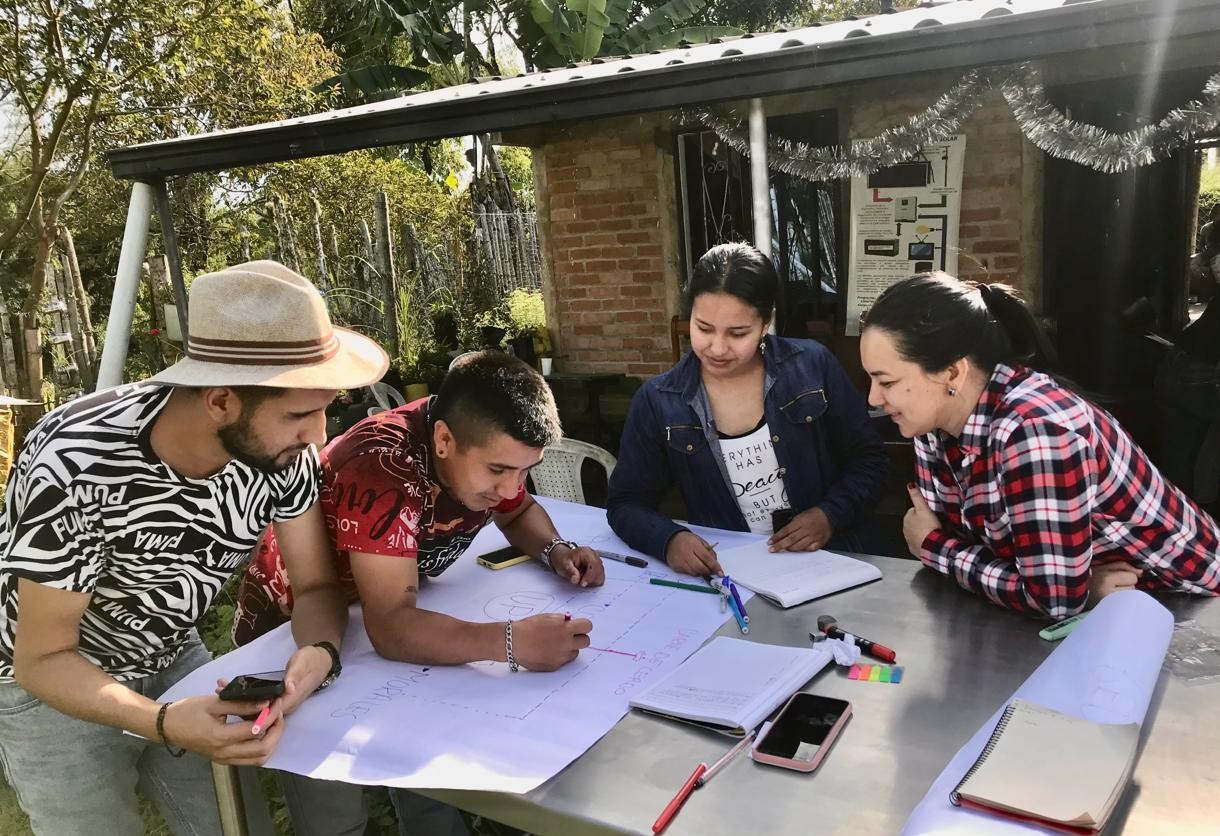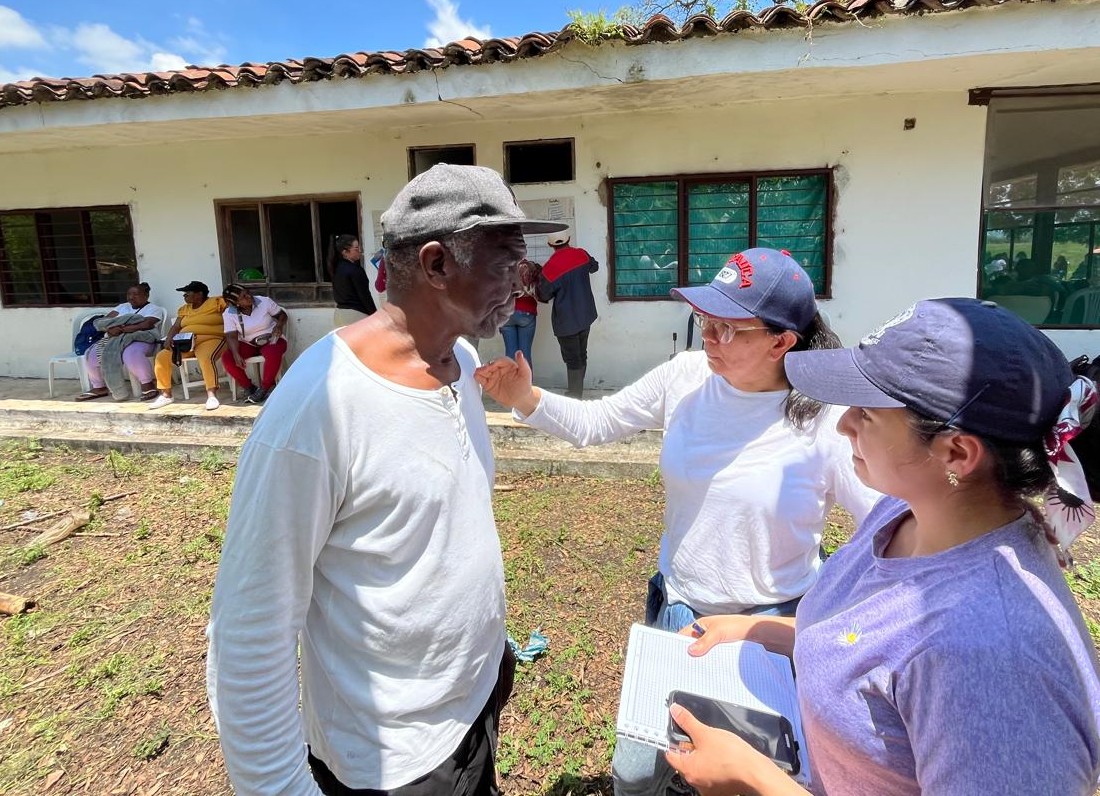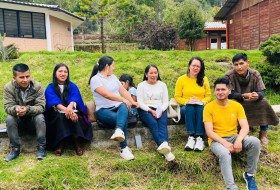News
Sowing the future in the territory: this is what studying Agroecological Engineering is like at the Santander de Quilichao campus of Unicauca
The University of Cauca has launched a new academic program at its Santander de Quilichao campus. Agroecological Engineering will be available starting in the second semester of 2025. This academic initiative was born from the strength of those who believe in the territory and in dignified living, like Professor Mónica Risueño Solarte. Through her experience and commitment, she invites young people to stay in their territories, to cultivate their roots based on who they are, and to plant the seeds of the future from this special field of knowledge.
The place where we are born and raised undoubtedly shapes our identity. For Professor Mónica Risueño Solarte, growing up in El Tambo (Cauca), surrounded by her parents' dedication as rural teachers, deeply marked her path. Today, Mónica is a professor and researcher in rural development and outreach at the Faculty of Agricultural Sciences of the University of Cauca. Her story is a true testament to how rootedness can become a powerful force for transformation.

Provided photo
Professor Mónica is a sociologist from the University of Nariño. Early in her life, she was drawn to rural life, environmental issues, and working alongside communities that cultivate the land and supply both countryside and cities through their labor. Her journey has taken her across different regions of Colombia such as the Pacific Coast, Nariño, Cauca, the Eastern Plains, and Boyacá, supporting organizational and productive processes. These experiences led her to pursue a Master's degree in Rural Development at the Pontificia Universidad Javeriana, with a focus on rural microfinance.
Since 2006, she has worked in Cauca with farming organizations, women’s associations, youth groups, and ethnic communities, promoting self-management and advocacy through participatory methodologies. These lived experiences inspired her to co-design strategies that integrate production, processing, and commercialization, always grounded in local knowledge. In 2016, she joined the Department of Agricultural Sciences at the University of Cauca as a professor. In 2024, she completed her PhD in Agricultural and Agroindustrial Sciences, as a recipient of the Bicentennial Excellence Doctoral Scholarships.
"My vocation as a teacher comes from the desire to learn alongside communities and contribute to social transformation through knowledge. Teaching allows me to research in real-world contexts, share knowledge, and build collective proposals with teams committed to rural development. Teaching is not just about transmitting information; it is about creating spaces for dialogue, analysis, and collaborative creation. It is about planting hope in the new generations who want to stay and transform their territories,” affirms Professor Mónica.

Provided photo
Thanks to this unique vision, Unicauca played a key role in the creation of the Agroecological Engineering program at its Santander de Quilichao campus. As she explains, "This program emerged from a research process linked to the creation of the Center for Research, Promotion and Social Innovation for the Development of Coffee Growing in Cauca (Caficultura). We identified the need for an academic offering that responds to the challenges of family farming systems, the conservation of natural resources, and the strengthening of regional economies.”
And since you're probably wondering, “What is Agroecological Engineering?”, here’s the answer. It is an educational initiative designed to support both rural and urban youth in building a more just, sustainable, and locally rooted agri-food model. “We aim to provide a training that helps young people find new meaning in rural life. To see themselves as key players in caring for natural resources, producing healthy food, and strengthening their local economies. This program offers tools that integrate technical knowledge with community wisdom, designing productive strategies with environmental, social, and economic relevance. It is an invitation to imagine new ways of living in and caring for our territories,” says Professor Mónica.
So, studying Agroecological Engineering means committing to both the present and the future. It means understanding that agriculture (crop and livestock production, processing, and marketing) is not just about growing food, it’s also about cultivating life, protecting water, soil, ecosystems, and ancestral knowledge. It’s an opportunity to transform your community, your region, and your country with initiatives that respond to today’s environmental, social, and economic challenges. “It’s an invitation to stay in your territory, to live well from who we are, and to sow hope and a future through agroecology,” concludes this professor and key promoter of this dream made real.

Provided photo
If Professor Mónica’s story resonates with you and you would like to study Agroecological Engineering, we invite you to apply at the Santander de Quilichao campus through www.unicauca.edu.co. Don’t miss this opportunity to change your life and make your dreams come true at a public university with High Quality Accreditation. Unicauca welcomes you with open arms to strengthen your knowledge and contribute to the development of your community, municipality, department, and region through rural development. You have until June 16 to make one of the most important decisions of your life. Become part of the first generation of Agroecological Engineers from northern Cauca, with the undeniable blue and red seal of one of the most important institutions in the region and the country.
Written by: Communications Management Center


